It was the end of August when Yan and I sat together to brainstorm our topics for the coming month -
![]() Yan: (knocking on her calendar) Aha! We are entering Virgo now, be really for a giant wave of anti-Virgo rants online soon!
Yan: (knocking on her calendar) Aha! We are entering Virgo now, be really for a giant wave of anti-Virgo rants online soon!
![]() Biyi: Have you ever thought why do Chinese loath Virgos? I feel this is a rather recent phenomenon – did we hate Virgo as much as, say, five years ago?
Biyi: Have you ever thought why do Chinese loath Virgos? I feel this is a rather recent phenomenon – did we hate Virgo as much as, say, five years ago?
![]() Yan: I don’t think so. There was definitely a time when the 12 zodiac signs were treated fairly equally here.......
Yan: I don’t think so. There was definitely a time when the 12 zodiac signs were treated fairly equally here.......

Baidu Index showing the rising search rate for Virgo 处女座 over the past few years.
In today’s Chinese understanding of Virgo, they are a group of perfectionist - difficult, petty, and fussy about every detail. In fact, the word Virgo in Chinese (处女座) is now a synonym for being OCD (e.g. "Could you not be so Virgo about this?"). With such reputation, Virgos, especially Virgo guys, have become the least-favored choice both for relationships and in the job market (a little TMI here: both of our boyfriends are Virgos and we KNOW that pity look from other people, “poor you...”).

Hiring ad from a bakery shop: "for those of you Virgo out there, don't worry, we might even consider you first!"
-
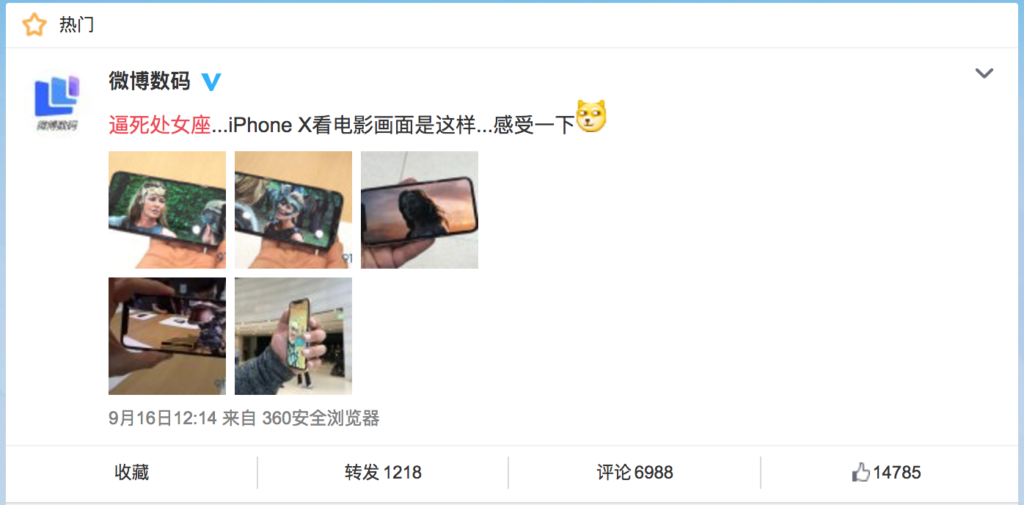
A trending post on Weibo: "iPhone X's screen drives Virgos crazy!"
(Me: "why? I don't see anything wrong with it?" My Virgo boyfriend: "that black censor on the screen, holy sh*t, I can't stand it even just looking at it..." )
-
The universal hatred for Virgo seemed to be a byproduct of Chinese medias's astrology "IP-lization" (yep, we made the word up). Just to demonstrate how horoscope has turned into a money tree in China: Uncle Tongdao, the media brand for original astrology comics was acquired for $ 2.9 million last December with a $46 million market valuation.

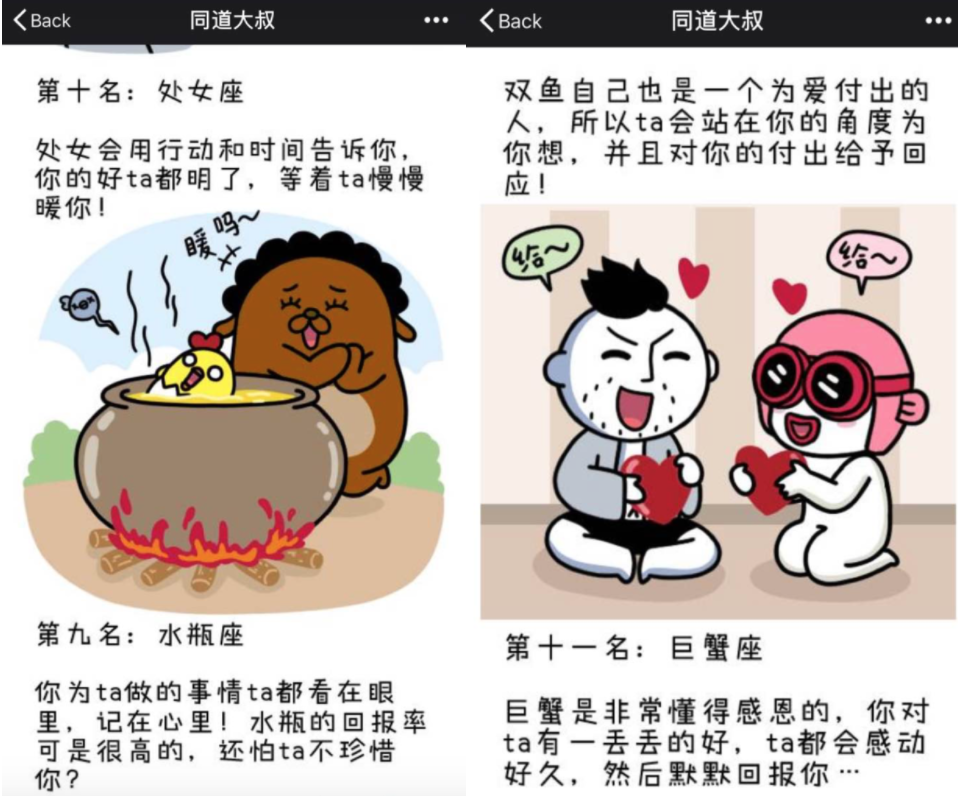
By designing the 12 zodiac signs into cartoon characters, Tongdao posts daily on Weibo and WeChat under titles such as “Who will Scorpions give their hearts to?”, “Why are Leos always being cheated on?”
-
When browsing through Uncle Tongdao’s WeChat account, two things shocked us the most: 1) all of his posts have gained over 100,000+ views, 2) both the content and the illustration style are incredibility juvenile: everything was drawn in bright colors and rustic lines, the captions were filled with exclamations marks and overly-exaggerated emotions. Why? why are the consumers and the capital market in love with something so, well, childish?
Our conversation over the astrology-fever soon turned into a boarder discussion on the relationship between Western astrology and the Chinese society. Looking back, the concept of Western astrology first entered China as early as in the 90s: both of us recall seeing celebrity horoscopes and natal birth chart analysis in almost every entertainment magazine we purchased back then. My mom, who ran a children’s magazine from the late 1990s to early 2000s, said that she had a double-page dedicated to horoscope readings since the first issue, and it stayed as the most popular column all the time (pretty astonishing considering the magazine’s readership was kids under age 12 - wait, that was me and my classmates...). How did they make those horoscopes content? "Well, like everybody else, we source materials from books and the internet and just toss things together." my mom laughs.
But here's the thing: although western astrology as a whole is nothing new to the Chinese publics, in recent years, it seems to have penetrated everybody's lives in an even more profound and intense gesture. Is this just another illusion created by the internet (“we are now all connected so we get to notice things that were not noticeable in the past” blah blah), or does it actually reflect some sort of change in terms of how the Chinese consumes Western astrology?
During the past few days, me and Yan bugged around at least a dozen friends or family members with one same question: do you believe in horoscopes?
The responds we got were a pretty balanced yes and no. That was within expectation considering our interviewees were diverse in ages and backgrounds. What surprised us was that the majority of them – even those who responded with a straight NO – follow some sorts of horoscope-related content online. Be it an “astrology master” account on Weibo or some zodiac fortune readings on WeChat, there’s always something that people are subscribed to or engaged with in their phones.
To avoid falling into the trap of generalization, we got on Weibo to dig through the comment sections (=where a diverse range of public opinions are the most bare out) of many “certified astrological masters” all with millions of followers if not more. Soon we discovered an interesting trend: the hundred thousands of comments might look anarchic at first, yet a closer look shows that they largely fall under two categories: either declarations of personal identities (“Yes I am a Leo, this is totally true!” “Little Cancer raising hand here!”) or “@” between friends with comments such as “check this out” or “this is so you!”.
So here we are, scrolling through endless unknown IDs on our screens, amazed by how so many of them are utilizing Western astrology for self-labelling and social connections. Unlike in the Western world of which individualism is championed as the center of capitalism, in today’s China, where authoritative politics and traditional culture clash with rapid economic boom under globalization, the young generations' desire for personal recognition is pushed to the corner of the society. What they've constructed through Western astrology is exactly a space to communicate such desire: a shelter where self-identifications are encouraged, personal failures are justified, and life struggles are comforted.
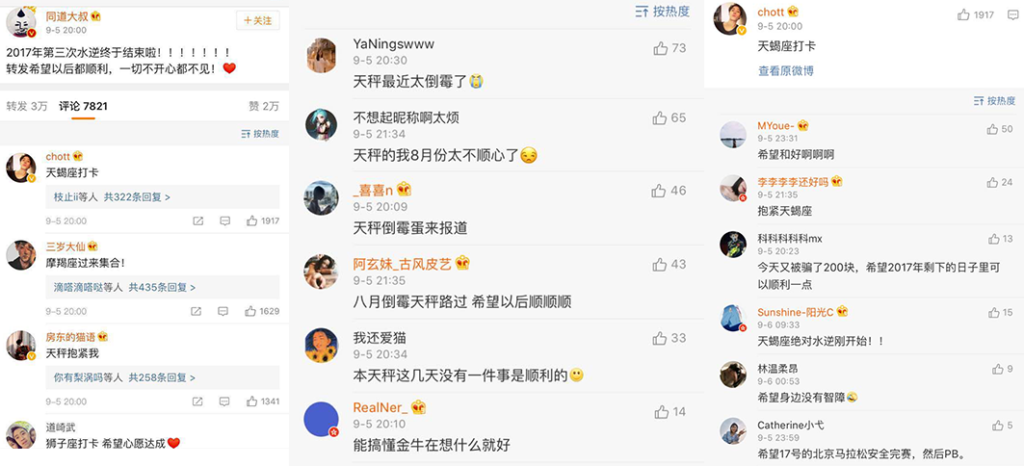
Of course there are also those who take astrology more seriously, who would regularly check forecasts by astrologers and once in a while complain how the Mercury retrograde has ruined their days. But this doesn’t mean they are devout believers either; “I only flick it through and remember the good things”, “it's more like a reminder for extra assurance, for instance, if the reading says my sign is likely to lose electrical devices in the coming week, I’d make sure I keep my belongs safe when I go out - other than that I don’t really care.” By perceiving horoscopes as a pragmatic tool instead of a sentimental, religious belief, people take what they need from the system, and ditch the rest once and for all.
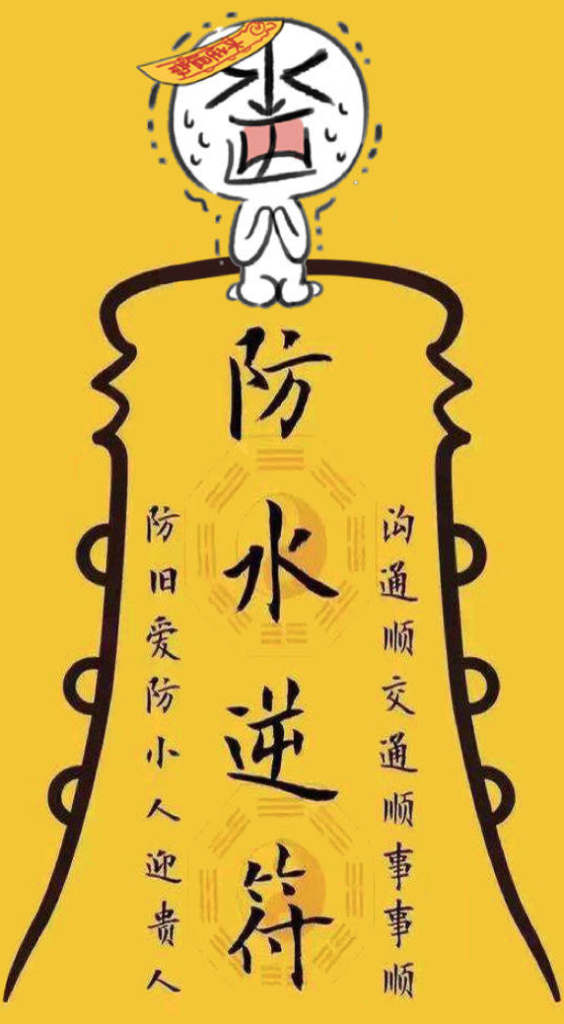
A sticker to prevent bad luck during Mercury retrograde.
-
Why astrology you may ask, why not believe in the Chinese Zodiac or the Bagua? Well, the Chinese Zodiac only comes handy when differentiating people born in different years and the Bagua system is too abstruse for the ordinary to understand. Western astrology in this case makes the best choice for fast-food consumption: who cares if it is “westernized” or “non-scientific”? As long as it provides comfort and keeps conversations going (just think about the many gà-conversation of which you had nothing to talk about but horoscopes…), it is legitimized enough to become an anchor, a guidance, and a justification for many young Chinese’s’ high-pressured, yet empty lives.
![]()
![]()
Having explored many youth-culture and internet related topics such as TFboys, Chinese Hip-Hop, 怼duǐ, 尬gà and 丧sàng, we felt we've touched the bottom of things in some ways: the many entertainment phenomenon and linguistic trends might look creative and sexy from the outside, but in reality, they are just flamboyant shells with a shattered, if not empty core. There’s no doubt that the economic boom and the rise of the internet have brought so much fascinating lifestyle changes to the Chinese, yet in the end of the day, under the cheerful, celebratory self-pride remains a giant identity crisis: what’s to believe and where to believe them from? Such are the elephant-in-the-room questions which, in our beliefs, could no longer pretend unseen anymore.
Astrology, in this case, is just another opportunity forcing us to face this giant, harsh reality: unlike in Western societies of which personal interests and beliefs are segregated, in today’s China, something like astrology truly has the power to unify and influence the mass at a collective level. We understand that everyone in their growing-up phrase needs a guiding light, a platform for self-understanding anding and community-forming, but come on, with so many options out there, why stuck with Western astrology?
Maybe there just isn’t that many options, after all.
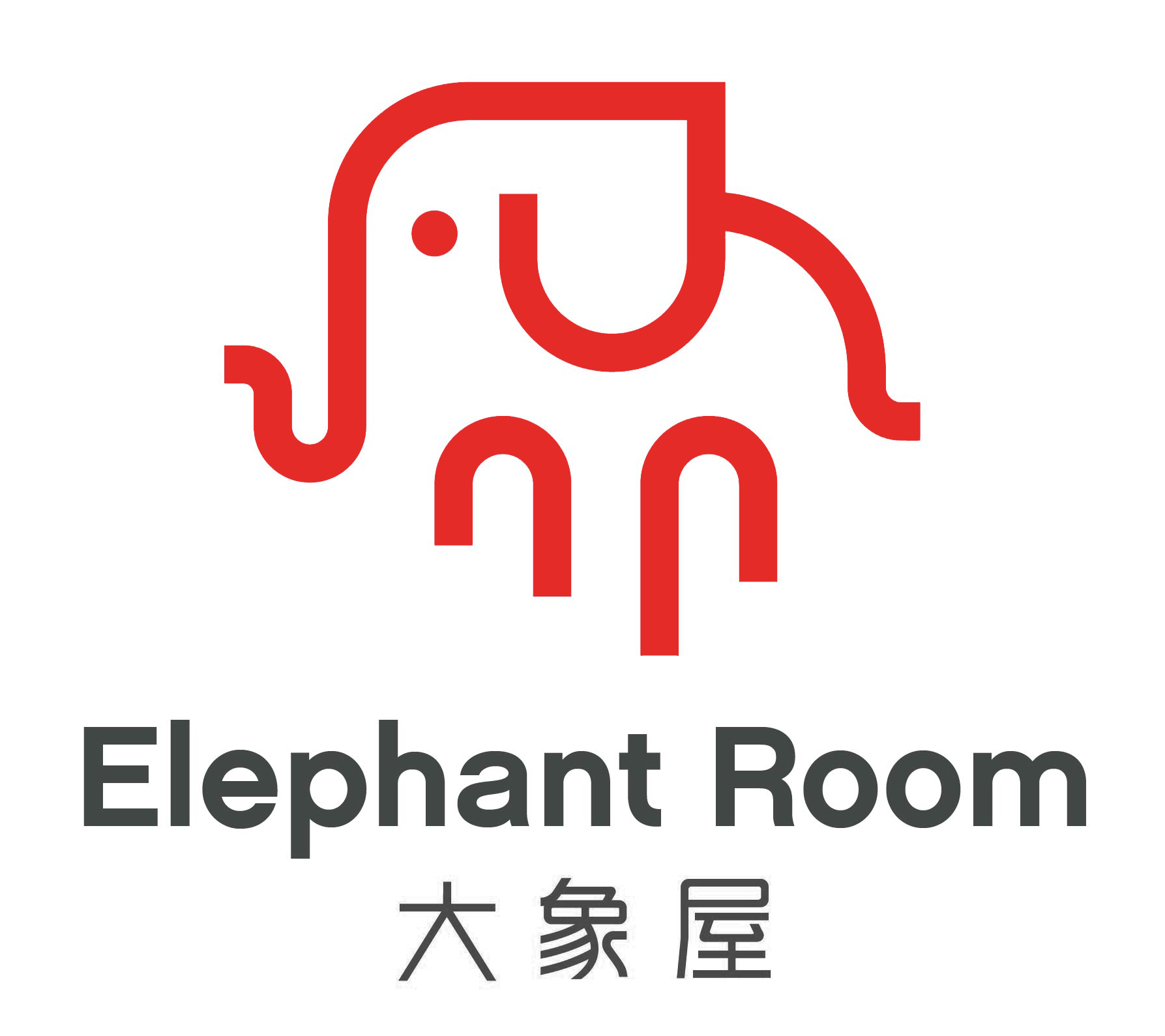
Horoscopes are discrimination and racism